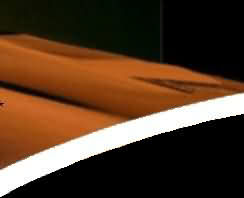





International Symposium on
Drylands Ecology and Human Security


© 2006 NDRD Imprint Disclaimer

|
An Assessment of Drinking Water Quality and Techniques for Recharging Urban Water System in Industrial Baroda City of Gujarat, India. B. R. Pandit Department of Life Sciences, Bhavnagar University, India Abstract The major part of Gujarat in Western India is arid to semi arid with an average rainfall about 500-700mm/yr. Baroda is an important industrial center of India situated in Gujarat. The city has experienced a heavy influx of population with rise in industrialization. This has resulted in scarcity of water in the city area. Water is not only the life blood of mankind but societies and nations have risen and fallen depending upon their level of understanding of this basic resources. The water pollution has become a major issue in development of surface and groundwater resources for protection of the fragile ecosystem. In the present paper quality of drinking water and techniques for water harvesting are discussed. The main sources of pollution are industrial effluents from industries like fertilizers, petrochemicals, pesticides, pharmaceutical, corrosive material, organic wastes etc. The domestic sector is also producing solid and liquid wastes. In all 26 physico-chemical parameters and few heavy metals of the five ponds of Baroda city were analyzed season wise for a period of two years to study the impact of urbanization and industrializations on the quality of water. The parameters like pH, turbidity, total hardness, sulfates, chlorides, fluorides, TDS, BOD, COD, DO etc. were estimated and discussed in the paper. All the studied parameters were in higher concentration compare to control. This is because of biotic activities in the pond, like decomposition of dead organic matter, which increases chemicals. During the study Arsenic, Lead, Mercury was not observed where as Cadmium and Chromium was recorded little higher than permissible limit in two ponds only. This is may be due to some small-scale industries in the area. Correlation coefficient among physico chemical characters of surface waters was calculated. The water is not suitable for direct consumption and it indicated slight abnormality in the quality of water. Surface and ground water system are inextricably linked. In most cases, this surface water system recharges the underlying aquifer. Although the recharge planning vary from country to country, the various techniques to harvest maximum water are tube well recharging, percolation pits, check dams, rooftop – water harvesting, underground tank, open area harvesting, artificial recharging pits connected with drains in the urban areas. |